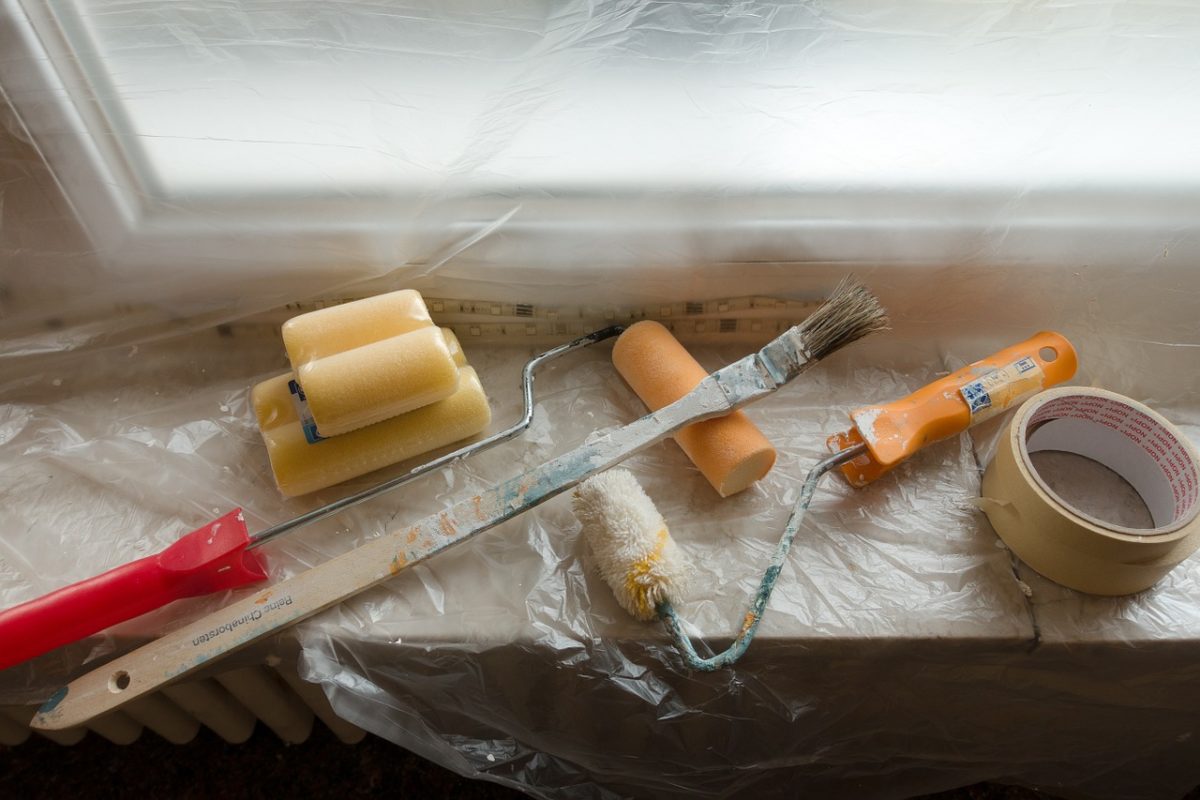Let’s face it, renovations are a huge disruption to life on the home front. They leave messy, insidious dust everywhere! Ideally, you should move out for a while to give your reno crew some much-needed breathing room. This earlier article covered how to prepare for such a move-out. This article will guide you if decide to live at home throughout the renovation, which is even more challenging.
Stay or Move Out?
While there is no hard and fast rule, the scale of the renovation will determine if you can stay put or if you should move out, at least for a few weeks during the peak of the renovation mess. You should move out if it’s a large-scale reno that includes your kitchen and most of your bathrooms since you won’t have plumbing needed to do basic food preparation and cleanup or maintain your family’s personal hygiene.
If it’s just a kitchen makeover, you could stay put but you may not be able to use your fridge, stove, sink or dishwasher. You will need to find another space in your home to do all the regular kitchen chores. Maybe that’ll mean creating a temporary kitchen in the basement and washing your dishes in a portable cooler filled with sudsy water – whatever works for you! Or you can simplify cleanup by using recyclable or biodegradable plates, cups, utensils and napkins.
Other considerations include kids and pets because neither will enjoy the disruption and both require supervision to ensure their safety and they can hinder the progress of work getting done.
Creative Solutions
There can be a middle-ground solution: Move out for the demolition until the drywall phase is completed, then move back in. You’ll avoid the noisiest and dustiest parts of the reno. Since drywall is usually completed two-thirds of the way through a reno, you’ll save one-third on your extended stay hotel or apartment rental.
Even if you stay at home during most of the reno, you may need to leave during certain times anyway. For example, finishing hardwood floors requires staying away for a few days after each application while the fumes dissipate.
Create a Temporary Kitchen
Your temporary kitchen can be set up in an untouched room or the basement. A small bar fridge will hold chilled necessities like milk, eggs and fresh veggies. If you have a basement freezer, you can prepare and freeze meals before the reno begins. Pick a few small portable appliances that you’ll need such as a microwave, toaster oven, hot plate, slow cooker or coffee maker, but be selective and leave the electric griddle behind. Easy access to an outdoor BBQ is a definite plus because it can do almost anything your oven can, like roast meat or vegetables or bake a pizza.
Managing Dust
If you’re knocking down walls, drywall dust will be everywhere. To limit the dust in rooms not being renovated, seal off those rooms with a zipwall or a zippered clear plastic sheet that’s adhered to the top of the doorway with duct tape. If you have a forced air HVAC system, seal both supply and return air vents in those rooms. But beware, those rooms won’t get air so they’ll get very cold in winter or hot and humid in summer. A small space heater or portable air conditioner can make the room more comfortable.
What to Expect of Your Contractor
Here is a general ‘Code of Conduct’ you should expect from your contractor and his crew. These are especially important if you’re living at home throughout the reno.
- Punctuality: Agree on what time the crew will arrive and leave each day.
- Respect: They should clean up after themselves each day and show respect for your neighbours and their property.
- Empathy: They should minimize disruption to the rest of your home, especially dust and noise.
- Professionalism: No profanity or crude language; No smoking in or around the property; No loud music with explicit lyrics. These are just common sense, really.
- Air quality: Use portable air scrubbers that purify the air of dust and chemical fumes.
- Protection: Ensure they take steps to protect your flooring (whether hardwood, tiles or carpeting) plus your countertops, sinks and tubs against scratches, abrasions and grime.
If you’re at the early planning stage of a reno, read our six-chapter Home Renovation Survival Guide – especially this chapter called 10 things to expect during your renovation.
Good luck preparing for your renovation. If you decide to stay put and ride out the reno storm while living at home, please share your experiences afterwards – either good or bad – by writing a review or connecting with us on Facebook, Twitter, or Instagram.
